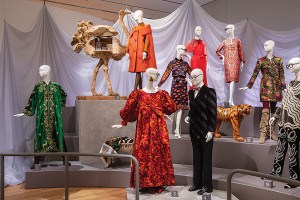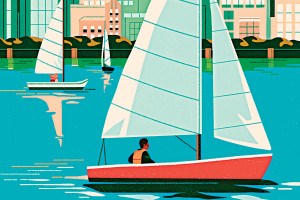What You Missed at Harvard’s Ang Lee Symposium

DIRECTOR ANG LEE. (PHOTO BY STEPHANIE MITCHELL/HARVARD STAFF PHOTOGRAPHER)
Oscar-winning director Ang Lee was at Harvard’s Sackler Museum this past Friday for a symposium organized by the university’s Fairbank Center for Chinese Studies. Born and raised in Taiwan, Lee first broke onto the international scene two decades ago with 1993’s The Wedding Banquet, a film written and produced by his long-time collaborator James Schamus, who also attended Friday’s event. Lee has since brought us cinematic favorites like Brokeback Mountain, Crouching Tiger Hidden Dragon, and Life of Pi, just to name a few.
At the symposium, after several seminar-style lectures from local film scholars (one was titled “The Diasporic Dimension of Ang Lee’s Cinema”), there was a Q&A session with Lee and Schamus that covered many of the topics pervading Lee’s work—from gay cowboys and Kung Fu camp to gender relations and family.
For those who couldn’t make it, here, in a nutshell, is what Mr. Lee had to say:
On being at Harvard:
“My father will be happy to know I finally got into Harvard.”
On religion:
“When I am spending time with a movie, I am close to God in a way. God not as a religious god, but as an emotional connection to the unknown self.”
On filmmaking:
“It starts with a dream, an urge, and then it’s just survival—‘how can we make this work?’ I think that’s all there is to me. I’m more of a vehicle—a vessel—than a creator… Making movies, I don’t think about the product, it’s just a way I find out about life, about myself. Only through pretense can you find the truth.”
On why there was no sequel to Crouching Tiger Hidden Dragon:
“I think when a girl flies down a cliff, it’s done. Nothing more to it.”
On whether listening to academics lecture on his work revealed aspects of his films he hadn’t thought of before:
“No.”
On Chinese censorship:
“To make a long story short, I think we just need to keep feeding them materials, keep it alive. It will open up… Sooner or later it will change.”
On life:
“I do my best.”


